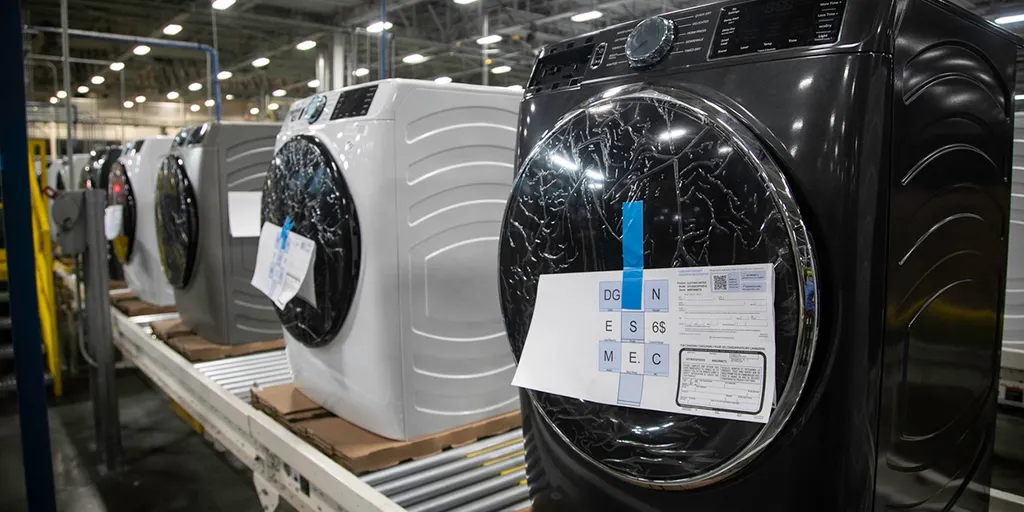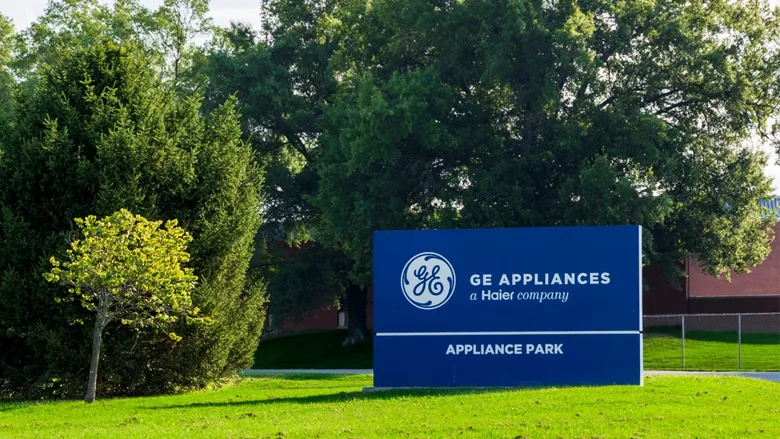GE Appliances is committing more than $3 billion over the next five years to expand and modernize its U.S. manufacturing footprint, a move that aligns with broader efforts to bring industrial production back to American soil.
The company’s pledge marks the second-largest investment in its history, with funds directed toward upgrading 11 manufacturing plants and boosting production across every product line. The first rollout will impact facilities in Kentucky, Alabama, Georgia, Tennessee, and South Carolina.
CEO: Supply Chains Must Come Home
GE Appliances CEO Kevin Nolan underscored the importance of building resilient, domestic supply chains.
“This starts a virtuous cycle,” Nolan said, emphasizing that local production encourages suppliers to follow suit.
The initiative is part of GE’s “zero distance” strategy, which aims to shrink the gap between its operations and its customers.
Earlier this summer, the company announced it would shift production of clothes washers from China to its Kentucky operations, underscoring a sharp pivot toward reshoring.
Plant Upgrades from Coast to Coast

The sweeping investment will add new product lines and jobs across the Southeast and Midwest.
- South Carolina: The Camden plant will begin producing electric and hybrid water heaters, with plans to double output and employment by 2026.
- Tennessee: New air conditioner models will be added to its air and water product lineup.
- Georgia: Gas and induction ranges, wall ovens, and cooktops will expand production, with gas range manufacturing returning from Mexico.
- Alabama: The Decatur facility will insource top-freezer refrigerators.
- Kentucky: A $490 million commitment will launch combo washer-dryer and front-load washer production, creating 800 new jobs.
Altogether, the company has poured $6.5 billion into its U.S. operations since 2016, generating more than 4,000 jobs—with another 1,000 expected from this latest phase. GE estimates it contributes more than $30 billion annually to U.S. GDP and supports 113,000 jobs directly and indirectly.
National Push for Manufacturing

The Trump administration has made reshoring a priority, using tariffs and trade policies to push companies to boost U.S. production. Since then, a wave of corporations has followed suit.
In March, GE Aerospace pledged nearly $1 billion in domestic investment. Pharmaceutical giant Eli Lilly announced a $27 billion expansion. Apple, Meta, Softbank, and others have made similar moves.
Nolan remains bullish on the shift. He said he’s “convinced” manufacturing is coming back to the U.S. but warned the process won’t be simple.
“People that are just getting into this for the first time,” he explained, “it’s going to be hard, because there’s going to be lessons of learning. And you got a lot of executives that I don’t think I’ve heard them all talk about manufacturing now, but I don’t know if any of them ever gotten their hands dirty and been out on a manufacturing floor and actually understand the processes.”
Workforce Challenges
The CEO stressed that America’s manufacturing revival hinges on building a pipeline of skilled workers.
He warned that the country must ramp up investments in schools, apprenticeships, and trade programs. “If you look at other countries out there that are good at manufacturing, their graduation rate of engineers, and especially manufacturing engineers, is much, much higher than the U.S. So you’re not going to bring manufacturing back without engineers,” Nolan said.
GE is tackling the issue head-on, partnering with high schools and trade programs to introduce students to industrial careers. The company also participates in two Manufacturing Institute FAME chapters, helping place more workers into skilled maintenance roles.
We work with students starting from high school to help them better understand trade jobs, Nolan noted, highlighting GE’s emphasis on apprenticeships and training.
With its latest investment, GE Appliances expects to add 1,000 new American jobs, cementing its role in the resurgence of U.S. manufacturing.



